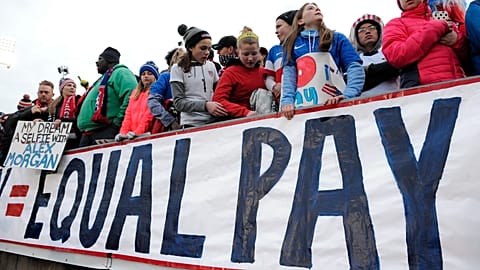Unpaid work is a significant aspect of gender inequality in Europe, with women on average spending two hours more per day on it than men. Differences in the gap follow regional trends, shaped by gender stereotypes and norms.
Gender inequality in the economy is evident across Europe. It appears in many areas, including employment, labour participation, and pay. A key driver of this gap is unpaid work. In OECD countries, women do nearly twice as much unpaid work as men each day.
 ADVERTISEMENT
ADVERTISEMENT
 ADVERTISEMENT
ADVERTISEMENT
In 23 European countries, women do on average 86% more unpaid work than men, a little less than double. More concretely, women spend 262 minutes per day on unpaid work, while men spend 141 minutes. This corresponds to a gap of 121 minutes , two hours each day.
Gaps in unpaid work between women and men vary widely across European countries. Which countries show the highest and lowest gaps? What are the main reasons behind unpaid work? And why is the gap especially large in some countries?
Gap is smallest in Sweden and largest in Turkey
Among 23 European countries, the unpaid work gap between women and men ranges from 29% in Sweden to a massive 349% in Turkey.
In Sweden, women spend 220 minutes per day on unpaid work, compared with 171 minutes for men — a difference of 49 minutes. Swedish women also record the lowest unpaid work time among all countries in the list.
Nordic countries perform best in closing the gap
Three other Nordic countries follow Sweden with the lowest unpaid work gaps: Denmark (31%), Norway (35%), and Finland (50%).
After the outlier Turkey, where women do 3.5 times (349%) more unpaid work than men, the next highest gaps appear in Southern Europe: Portugal (242%), Greece (173%), and Italy (134%). Spain also ranks high, in seventh place, with a 98% gap, meaning women do almost twice as much unpaid work as men.
The OECD’s Gender Equality in a Changing World report finds that “unpaid work acts as a barrier to paid work for some women, keeping them out of the labour market”.
It is no coincidence that Turkey has the lowest labour participation rate in 2024 at 37%, compared with the EU average of 53%, according to the OECD. Italy follows with 42%, and Greece ranks fourth with 45%. These countries also report the highest gender gaps in unpaid work.
Care responsibilities and social norms
Dorothea Schmidt-Klau, chief of the employment, labour markets and youth branch at the ILO in Geneva, explained to Euronews Business why Turkey and Italy rank highest in Europe for the share of “persons available to work but not seeking”.
“Care responsibilities and social norms are two other drivers that play a role, especially in Turkey," she said.
"Limited access to affordable childcare and eldercare services, along with social attitudes regarding women’s roles, reduce the ability of women to engage in active job search.” As a result, she said the female participation rates here are among the lowest in OECD countries.
Among Europe’s five largest economies, Italy and Spain perform the worst, while Germany shows the smallest gap at 61%, followed by France at 66% and the UK at 78%.
Women exceed 5 hours unpaid work in 3 countries
In Portugal (328 minutes), Italy (306 minutes) and Turkey (305), women do more than five hours unpaid work.
This is also more than 3.5 hours even in Sweden, which has the lowest unpaid work time. France ranks second where women spend 224 minutes on unpaid work.
Turkish men do the least unpaid work: just 68 minutes
Not surprisingly, men spend the least time on unpaid work in the three countries with the widest gaps. Turkey is an outlier, where men dedicate only 68 minutes a day to unpaid work, followed by Greece with 95 minutes and Portugal with 96 minutes.
Most unpaid work is routine housework
In every country, for both women and men, routine housework makes up the largest share. In several countries, it accounts for more than 70% of daily unpaid time. Care for household members and shopping follow, and together the top three categories represent around 90% of all unpaid work, according to OECD.
In Portugal, for example, women spend 253 of their 328 daily unpaid minutes on housework, which corresponds to 77%. In France it drops to 70%, and in Denmark to 60%.
How to reduce the gender gap
The OECD highlights the role of “norms and stereotypes” in driving inequalities, noting that these are learned from an early age. The report calls on countries and the European Commission to take stronger action to narrow the gender gap in unpaid work. Some key recommendations below directly address the factors that sustain this gap.
Promoting equal sharing of care and household responsibilities between women and men, including by challenging gender stereotypes and norms (through awareness campaigns, education materials, etc.).
Providing both mothers and fathers with individual paid leave entitlements.
Expanding equitable access to hybrid and remote work by investing in digital infrastructure and training.
Investing in affordable, accessible, and high-quality early childhood education and care, as well as out-of-school hours care.
Improving pay, job quality, and formalisation in female-dominated caregiving professions, while also encouraging men to enter care-related careers.

















